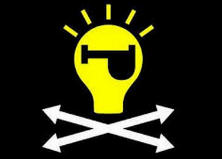Researchers have found that software piracy is directly linked to intelligence on a national scale. Covering more than 100 countries, the study shows that software piracy rates are lower in more intelligent nations. However, that doesn’t mean that ‘dumb’ countries have no option to curb this trend.
Source: TF, for the latest info on copyright, file-sharing, torrent sites and ANONYMOUS VPN services.
 There are hundreds of reasons why people may turn to piracy. A financial motive is often mentioned, as well as lacking legal alternatives.
There are hundreds of reasons why people may turn to piracy. A financial motive is often mentioned, as well as lacking legal alternatives.
A new study from a group of researchers now suggests that national intelligence can also be added to the list.
The researchers report their findings in a paper titled “Intelligence and Crime: A novel evidence for software piracy,” which offers some intriguing insights.
In a rather straightforward analysis, the research examines the link between national IQ scores and local software piracy rates, which are reported by the Business Software Alliance. As can be seen below, there’s a trend indicating that countries with a higher IQ have lower software rates.
“We find that intelligence has statistically significant negative impact on piracy rates,” the researchers confirm in their paper, drawing a causal conclusion.
National IQ and Piracy rates

There are some notable outliers, such as China, where piracy rates and IQ are both relatively high. On the other end of the spectrum we find South Africa, with a low national IQ as well as low piracy rates.
The general trend, however, shows a direct relation between a country’s average IQ and the local software piracy rates.
“After controlling for the potential effect of outlier nations in the sample, software piracy rate declines by about 5.3 percentage points if national IQ increases by 10 points,” the researchers note.
To rule out the possibility that the link is caused by external factors, the researchers carried out robustness tests with various variables including the strength of IP enforcement, political factors, and economic development. However, even after these controls the link remained intact.
Luckily for copyright holders, ‘dumb’ countries are not ‘doomed’ by definition. If the ruling elite is smart enough, they can still lower piracy rates.
“[The results] should not be taken as universal evidence that society with higher intelligent quotient is a requirement to alleviate software piracy,” the researchers write.
“Our findings indicate that if ruling elite enforces policies to decrease software piracy, intelligence provides a credible proxy of the degree of consent of such policies.”
Interestingly, if these results hold up, with a bit of luck software piracy may solve itself in the long run.
Previous research found that software piracy increases literacy in African countries, which may in turn raise the national IQ, which will then lower piracy rates. Or… will that lower literacy again?
The full paper is available here (pdf).
Source: TF, for the latest info on copyright, file-sharing, torrent sites and ANONYMOUS VPN services.



 Die Deutsche Telekom will offenbar den Hosting-Anbieter Host Europe übernehmen. Ein Kaufpreis von 1,7 Milliarden Euro soll im Gespräch sein. Für den deutschen Markt könnte die Übernahme drastische Konsequenzen haben, auch höhere Preise für Kunden. (
Die Deutsche Telekom will offenbar den Hosting-Anbieter Host Europe übernehmen. Ein Kaufpreis von 1,7 Milliarden Euro soll im Gespräch sein. Für den deutschen Markt könnte die Übernahme drastische Konsequenzen haben, auch höhere Preise für Kunden. ( Der AM-RB 001 soll der schnellste Seriensportwagen der Welt werden. Jetzt sind erste Details zu Project Nebula von Aston Martin aufgetaucht, mit denen der Autobauer den Bugatti Chiron schlagen will. Eventuell wird es ein Hybrid-Fahrzeug mit Technik aus der Formel 1. (
Der AM-RB 001 soll der schnellste Seriensportwagen der Welt werden. Jetzt sind erste Details zu Project Nebula von Aston Martin aufgetaucht, mit denen der Autobauer den Bugatti Chiron schlagen will. Eventuell wird es ein Hybrid-Fahrzeug mit Technik aus der Formel 1. ( Der Gründer von Android-x86 ist der neue Technikchef von Remix OS. Damit wird die Zusammenarbeit zwischen dem Android-x86-Projekt und Jide weiter intensiviert. Auch soll Android auf dem Desktop vorangetrieben werden. (
Der Gründer von Android-x86 ist der neue Technikchef von Remix OS. Damit wird die Zusammenarbeit zwischen dem Android-x86-Projekt und Jide weiter intensiviert. Auch soll Android auf dem Desktop vorangetrieben werden. ( There are hundreds of reasons why people may turn to piracy. A financial motive is often mentioned, as well as lacking legal alternatives.
There are hundreds of reasons why people may turn to piracy. A financial motive is often mentioned, as well as lacking legal alternatives.
 Decoding und Encoding von HEVC- sowie VP9-codierten Inhalten mit 10 Bit Farbtiefe: ARMs neuer Mali-Videokern Egil unterstützt HDR und 4K-UHD-Videos mit 120 fps, gedacht ist er für Smartphone-Chips. (
Decoding und Encoding von HEVC- sowie VP9-codierten Inhalten mit 10 Bit Farbtiefe: ARMs neuer Mali-Videokern Egil unterstützt HDR und 4K-UHD-Videos mit 120 fps, gedacht ist er für Smartphone-Chips. ( Manche O2- und Base-Nutzer zahlen zu hohe Roaming-Gebühren. Davon geht die Bundesnetzagentur aus und will dem Mutterkonzern Telefónica Deutschland ein Zwangsgeld verordnen, damit die gesetzlichen Bestimmungen künftig eingehalten werden. (
Manche O2- und Base-Nutzer zahlen zu hohe Roaming-Gebühren. Davon geht die Bundesnetzagentur aus und will dem Mutterkonzern Telefónica Deutschland ein Zwangsgeld verordnen, damit die gesetzlichen Bestimmungen künftig eingehalten werden. (
